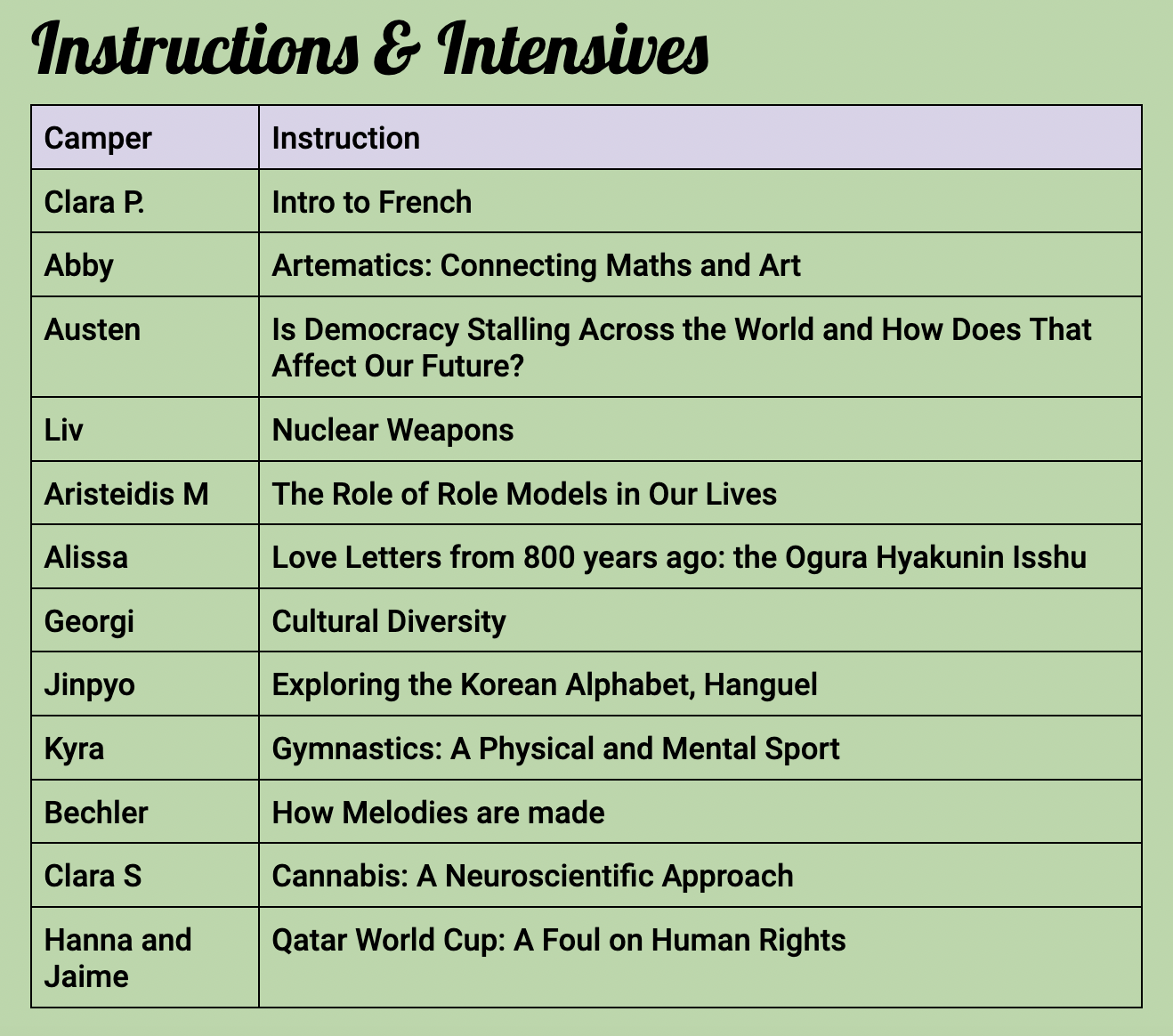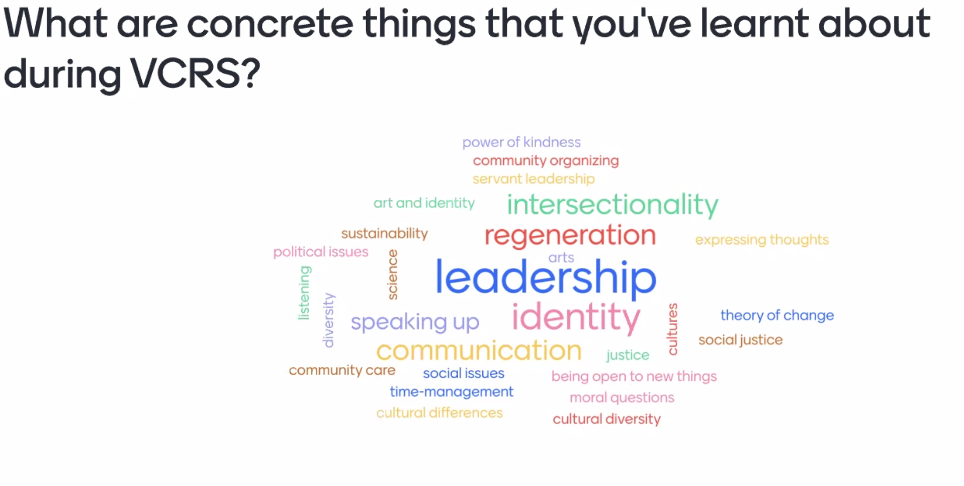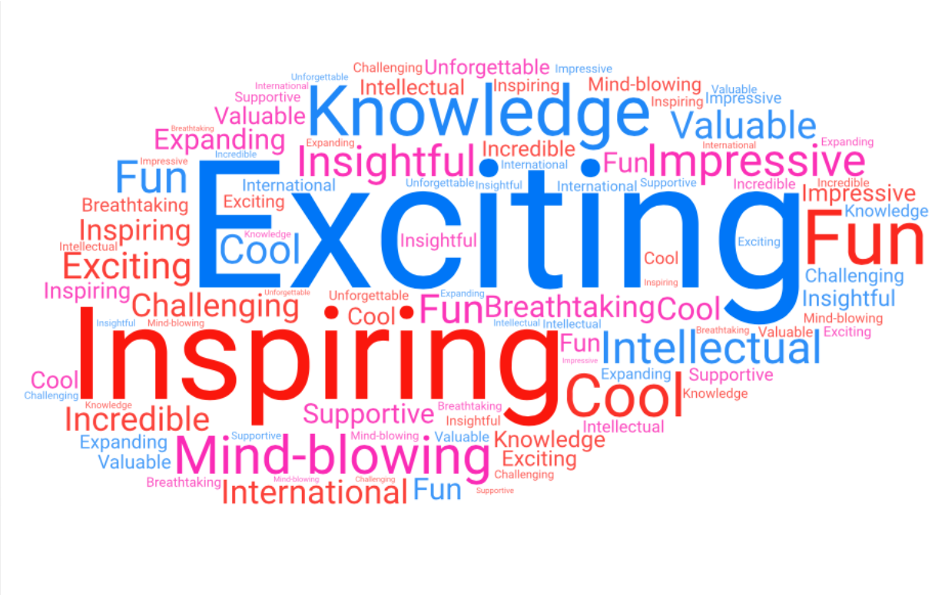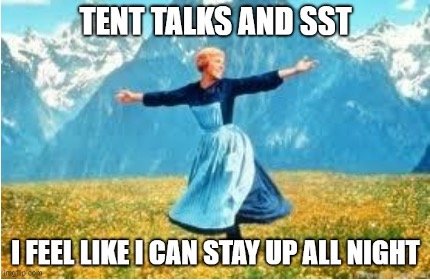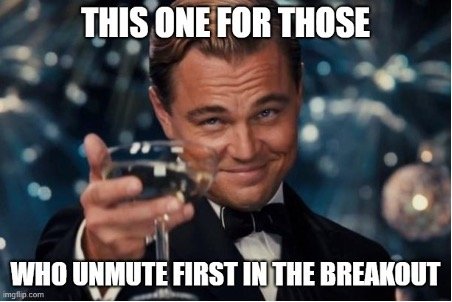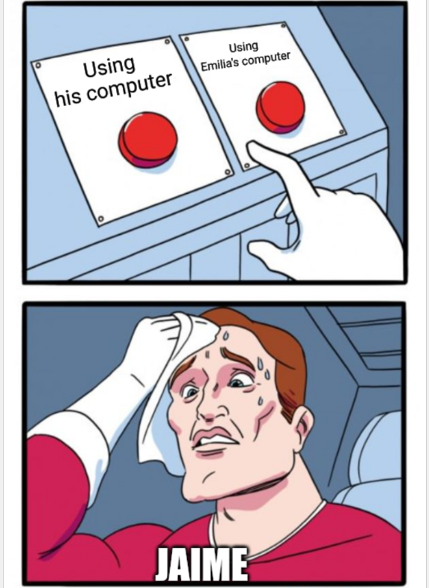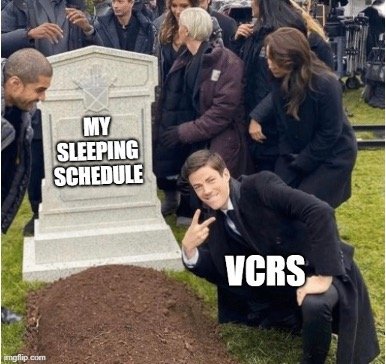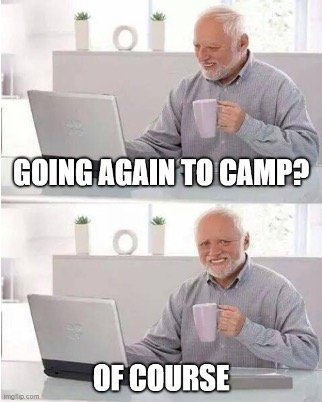Who Dunnit?
Austen: Hi, I’m Austen and I am a Second Year Camper (2YC) from the United Kingdom. I like reading, playing with my dog and going for long drives. It’s been such a different experience being a 2YC and I really enjoyed it, however, it was still as nerve-wracking as being a 1YC.
Gergely: Hi, I’m Gergely and I am a Second Year Camper from Hungary. I enjoy discovering new things, deepening my knowledge in physics, economy, politics, music theory, you name it (also, singing out of pitch in the streets). Being part of the CRS community changed my life for the better, and as a 2YC I hope I was able to contribute to the new camper’s experience .
Jinpyo: Hi I’m Jinpyo and I am a First Year Camper from South Korea. I like reading science books, novels, and poetry. I also enjoy listening to various music ranging from jazz to rock. I had a great experience in VCRS this year, getting to know various people and gaining new insights.
Christopher: Hi I’m Christopher and I am a First Year Camper.
Anjani: Hi I’m Anjani and I am a First Year Camper from India.
Everyday life in camp
Day 1 (4th August)
Finally, the start of Virtual Camp Rising Sun! We were all really excited to meet everyone from diverse places around the world and start our programs. We started Day 1 with a quick round of introductions, first the staff then the second year campers. Then each of us campers were put in breakout rooms where we exchanged what we were interested in and what we wanted to teach to others.
“The most important thing for me about VCRS is the possibility to meet young people from different cultures and nationalities who follow the same common goal: To be a positive change in the world.
A funny thing that happened to me, was when playing Garlic Phone someone confused the map of Venezuela with the map of Spain.
”
Afterwards, the staff members introduced us to the various programs that will take place throughout the camp, such as projects, instructions, and SST. We all got very excited about them!
Then, we had a session about safer and more inclusive spaces. In breakout rooms, we described to each other the places we feel safe in, and we tried to picture them inside our minds.
Tent Talks also started today. We met members of our tent talk group for the first time, and we spent a wonderful time sharing our daily lives and various interests! - Jinpyo
Day 2 (5th August)
On the second day of camp, we had opportunities to think about identity and intersectionality. We started with a story of Lia Lee, who was a little child going through severe epilepsy. She was one of the Hmong People, and her parents did not follow the medications of the hospital. We had discussions about what decision we should make as the ethics board of the hospital, and it was an experience that made us think about cultural identities and justice.
We went on to a session about our own identities. We learned about the wheel of privilege, which showed certain identities that had more power in society than others. We thought about our own identities based on the wheel, and we shared with others what we felt and thought about them.
“The second day, I guess, was the most impressive for me. The reason for that is that I loved the way we solved challenges, discussing with each other in breakout rooms. The challenge which I preferred the most was during this day, when we tried to help the girl who had a disease.”
Afterwards, we were divided into several groups, and we tried to design an ideal school where every student could learn and live safely no matter what their race, language, or any identity marker were. The results were astonishing as every camper had so many great ideas about school designs and learning systems!
Project time followed, when we all divided into our project groups and started planning things ahead. The day’s VCRS came to an end with Tent Talks, and we each thought of our tents’ names: Llama Dramas, Honest Communist Monuments, Panthéon, and Scary Skeleton Scubadivers! We also tried to come up with tent cheers and make tent Zoom backgrounds. - Jinpyo
Day 3 (6th August)
The third day of camp was all about different forms of Justice and Social dilemmas. The program began with a discussion about the nature of decisions, how one can define and distinguish between a morally good and a right choice. Our findings were put to the test right away as the group separated into smaller breakout rooms and the campers had to face tough speculative situations where the outcome of their actions had serious consequences. After the discussion of the moral dilemmas an activity began in which we could actually plan our actions to bring Justice to our society. We were divided into several breakout rooms and each room watched a video about an important social problem happening in the world. We thought of plans to actually make changes about those problems.Approaching the end of the main program the project groups gathered once again however after the closing of the breakout rooms the fun was not over at all. SST just began in which we had a chance to play games together and get to know each other a bit more. There were SST programs such as Mafia and Gartic Games, which were all very fun. - Gergely
“I really liked day 3, especially the SST part where I had so much fun and got the chance to know everyone a little bit better. ”
Day 4 (7th August)
For the 4th day of VCRS, we started with an activity about Knowledge. We learned how there can be epistemic injustices, which are injustices caused by lack of knowledge.
Next, the first set of Instructions took place! Instructions are sessions in which a camper teaches about something they are passionate about. There were 7 instructions in total that took place today.
“Day 4 of VCRS, was all about learning from other experiences either from instructions, affinity groups or the stories about epistemic injustices. This was a day we got to meet other campers better.”
I ran an instruction (which resembles a mini-TED talk) on whether or not Democracy is stalling around the world. As a 2nd Year Camper I knew what came with running an instruction but the few moments before we began I still felt as nervous as the first time. We discussed in depth the politics of the USA, the UK and Finland and whether or not their democracies are improving or stalling. As a group we looked at how these governments function, how politicians are elected and if this is democratic. Finally, I proposed two big questions to the campers: what solutions would you propose to safeguard democracy and is any democracy perfect? I hoped these questions would make campers think about our role in the progress society makes and how improvement is continuous.
Afterwards we had some time for Affinity Groups, which are a group of people who share common identity characteristics. We went into Affinity Groups and shared our experiences with others. There were tent talks as well today. - Austen
Day 5 (8th August)
Today was our first day of our first round of Intensives. I signed up to the organising for social justice hosted by Elyem and Jaime. First we got to know each other. Bit more and then we discussed the purpose of storytelling in justice and we also analysed the meaning of some quotes and posters and what they mean for social justice.
Then, we had some time for Projects and Tent Talks and the day came to end. - Austen
“Today was really exciting. We could finally show our tent cheer and our background as well. Our tent had so much fun teaching tongue twisters to each other in our own languages.”
Day 6 (9th August)
“The ‘What’s Feminist about Women’s Health’ intensive was super enlightening and it was really fun to interact with other campers at SST.”
Day two of the intensive organising for social justice. We looked at how our interventions aligned with our desired outcome and we discussed the idea of a theory of change and how that impacts our decision making when trying to achieve a goal. After a break and some good music we began to discuss a scenario and how we would go about reaching our desired goal through different interventions. It was so much fun taking a scenario and delving deeper into what impacts our decisions have. - Austen
Day 7 (10th August)
The final day of our intensives. We continued in our groups to discuss how we were going to advocate for our campaign, mobilise people and organise to achieve our goal. We shared ideas about how to connect and communicate with people whilst on campaign by learning the key steps to canvassing. These included: Introduction, Issues & Agitation, Vision & Education, Call the Question, Inoculation and Next Steps.
“We learnt a lot about women’s health in the intensive, it was great to listen other’s opinions about the topic.”
In smaller break out groups of between 2 and 3 we put our new canvassing skills to the test, trying to convince the other campers to join our cause.
What did I take away from this Intensive: I think I learned the importance of ensuring you have all the steps towards your goal, aligning your method with your ideology to ensure your desired goal is reached and also finding a connection between your campaign and the people. - Austen
Day 8 (12th August)
“I found the poetry intensive very interesting. I had a chance to realize that I am into poetry and it makes me calm and happy. I loved our ESL Affinity group as well. The hour we had passed very quickly and I got to know our campers much better. I hope their energy battery will be fully charged by the end of the camp”
After a one-day break, we came back and began the second half of our VCRS! Today we all started our second round of Intensives, which were Philosophy in Science Fiction and Science Reality; From Sustainability to Regeneration: Tools for Imagination and Action; Art as Expression, Exploration, and Action; Race, Racism, Racial Justice; and Exploring poetry and Poetic Form.
I attended the Intensive of Philosophy in Science Fiction and Science Reality. With the director, Justin, we dived deep into the use of statistical evidence in law. It was a wonderful time as we talked about interesting examples and learned so much about how mathematics should be used in the court.
Afterwards we had Affinity Groups for the second time, where we exchanged our experiences with others who shared a common identity characteristic. Some participated in SST, doing Geoguesser, City Guesser, and the Mafia Game. The day ended with Tent Talks, which were filled with fun conversations as always! - Jinpyo
Day 9 (13th August)
And here it comes, the second day of our second intensive. The first two hours of the day were spent in different sessions, in the one I attended we talked about sustainability and regeneration. Throughout an interesting activity we explored the idea of an ideal state in 2070, different aspects of space exploration and virtual reality were also mentioned. As we returned to the main session, the cohort broke up once again into project groups, where we had a chance to work and have some fun together. To close off the program, campers attended SST activities to create closer bonds. - Gergely
“The day was really fun and insightful. We had a very cool debate in our intensive about exploring space vs. virtual reality when thinking about infinite resources.”
Day 10 (14th August)
Huh, final day of the intensives :(. In the sustainability group we had a chance to learn about different kinds of actions, civil disobedience and also discuss how we can actually achieve change in our communities. The second half of the intensive was spent with a guest, Dominika Lasota, a CRS alumni who is now included in the movement Fridays for Future where she works as an activist, advocating against fossil fuels and the war in Ukraine. We had a chance to discuss different aspects of her work, and ask interesting questions regarding climate justice and activism. - Gergely
Day 11 (15th August)
On day 11, we had the second set of instructions. We had all enjoyed the first set of instructions on day 4, so we were all very excited about this day. In the first half an hour there were instructions of “How Melodies are Created” by Bechler, “Cannabis- a Neuroscientific Approach” by Clara S., and “Exploring the Korean Alphabet, Hangeul.” by me. And in the second half an hour there were “Qatar World Cup: a Foul on Human Rights” by Hanna and Jaime(from the other cohort), and “Gymnastics: a Physical and Mental Sport” by Kyra.
Personally, I ran the instruction of “Exploring the Korean Alphabet, Hangeul.” I introduced to other campers the unique history of the invention of Hangeul, and the philosophical and scientific principles of Hangeul. We had small discussions about the writing systems of each of our countries in between. Then we read some Korean words written in Hangeul together, and each made nameplates with our names written in Hangeul! It was a great experience where I could really feel how culture can be exchanged and shared.
After Instructions, we had some time to debrief Intensives. We shared with others what we had learned and felt from the Intensives. It was interesting to get to know what happened in the Intensives that we didn’t attend. Lastly, we had some time to work on our Projects, which were almost getting finished! - Jinpyo
Day 12 (16th August)
Only two more days left of VCRS already! On our 12th day of VCRS, we worked mostly on finalizing Projects. Each project group gathered together and finished up what they had been working on together for a long time. Occasionally, we were pulled out to have some checkout time with Jaime and were interviewed.
Afterwards, we had some time to learn about life after VCRS, such as returning as 2-year Campers, working in LAJF, or joining alumni events. We also had some time to reflect on our experiences throughout VCRS and share them with the rest.
The day ended with the last SST. In one of them, campers created some memes, which were one of the funniest things that happened throughout camp! - Jinpyo
Nah, it was quite intensive
Sustainability to Regeneration - Gergely
Science, economy, politics. From a young age I was interested in the complexity of these systems and was delighted to explore the inner workings and the connections behind the fields. Throughout the “Sustainability to Regeneration” intensive, held by Emlila, the cohort got a chance to deepen their knowledge in exactly these aspects.
Climate change is a very real and relevant problem of our generation, however solving this situation might be more difficult than one would first think. We learned how interconnected society really was, how the way today’s economy functions might lead to the destruction of itself, and how people with different socio-ecological backgrounds, and identity markers are disproportionately affected by this crisis. Through fun and interesting activities we’ve broadened our knowledge about the problem, and how to actually overcome the situation. With the help of Dominika Laposta, a CRS alumni and climate activist, we explored different ways to take action, to step up to protect our environment and our future. However, we also got a chance to have a free discussion and get to know her world better. In my opinion, the intensive had something new, and important for everyone, no matter how informed or invested one was before the start of the program.
Personally, it was great to hear from an activist, how she manages the difficulties and inconveniences of such a life-situation. It made me hopeful, knowing that such wonderful people are actively working towards the solution, and even more importantly it relighted my motivation to take part in the change more significantly as before.
Philosophy in Science Reality and Science Fiction - Jinpyo
The importance of science is increasing day by day. There are many jobs nowadays that are closely related to areas of science and technology, and many of the jobs that aren’t directly related also require an understanding of science. As a result, in high schools around the world, many students tend to choose science subjects as their electives. South Korea, where I come from, is no exception, where subjects like Biology, Earth Science, Chemistry, and Physics have lots of popularity. However, when we learn these subjects in school, the focus is usually just on the knowledge. It’s mostly about memorizing information and practicing how to solve questions quickly and accurately. There is usually a strict answer for everything we learn.
The instruction which I attended, “Philosophy in Science Reality and Science Fiction, was extremely meaningful in that it was able to expand this kind of view of science. It broadened my view of what science is and how it can be used. I learned that science is not just about knowledge or looking for fixed answers in questions, but also about philosophy and creative thinking.
A topic that we went through, for instance, was the use of statistical evidence in the court. I hadn’t really thought of the idea of using statistics in lawsuits.To think about the topic, we looked at the classic example of the Blue Bus Company. Let’s presume that there is one case where an eyewitness testifies that a blue bus hit a person, and his words have 70% reliability. In another case, 70% of the buses that exist in the area are blue, and a bus hit a person. In both cases, the probability of a blue bus being the culprit is the same. However, the evidence of the latter case, which is statistical evidence, has less value. It’s because it is true regardless of what actually happened, and lacks “counterfactual sensitivity”. From this example I could learn how science and mathematics could be used in legal situations, which was an extremely new point of view.
Another topic we covered was classification. In school science class, we usually learn the definition of a concept as just a sentence shown in the textbook. However, we learned that in actual science the issue of classification and definition is complicated. For instance, the problem of defining what a species is in biology is hard because there are always lots of exceptions. When classifying something, scientists use various parameters. That is, they add lots of dimensions and make the classification into squares, cubes, and etc. For instance in quantum mechanics, we need more than just 3 dimensions to correctly express the location of electrons. I felt that classification in science was something that demanded a lot of philosophy and flexible thinking.
Lastly, the relationship between science and magic was also an interesting topic we went through in the intensive. In an ancient Chinese medicine book, there is a description of dragon bone powder used as medicine. Many people consider this as just magic and imagination, that doesn’t have anything to do with science. But it turned out that the dragon bones the book was talking about could actually be the bones of dinosaurs. What looks like mere magic might have been an early form of archaeology. Through this example I was able to think about what science is and what it is not.
In my opinion, the deeper you dive into science, the more you get face to face with philosophy. Science is not just about memorizing knowledge or looking for fixed answers. Philosophy has a lot to do with philosophy and thinking in new ways. This intensive made me think of the essence of science, and its uses in the world. I think it is greatly important for us to think of the philosophical aspects of science as we study it and use it to make a better world.
Race Racism and Racial Justice - Christopher
It was a very interesting intensive which brought many aspects of race and unfairness to races. Racism is a social construct which targets a specific race and assumes something back because they are part of that race. It is very key to understand that people are born the way they are and it is extremely unfair to me to be horrible to that person because of their race and I think society has to be more aware about it. Of the inequalities of the races they can lead to people getting treated worse or have bad conditions so people then believe to create the stereotypes. Social inequalities are the reason there are many diseases associated with race or many other prejudices that affect a certain group of people.











